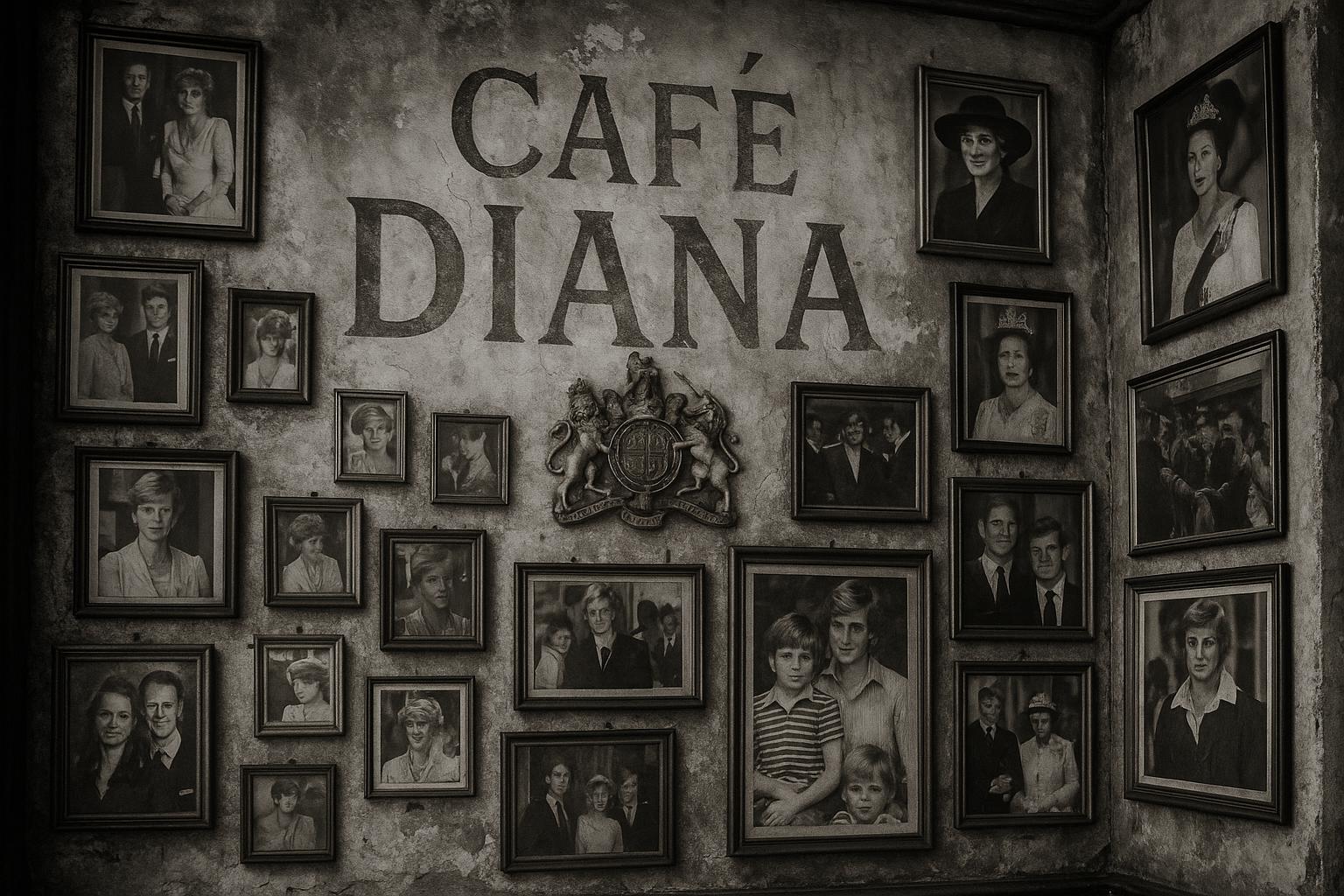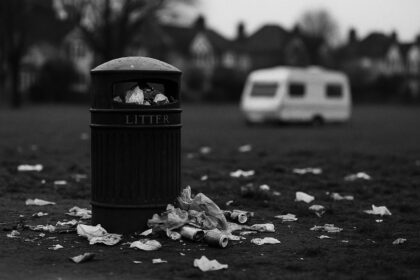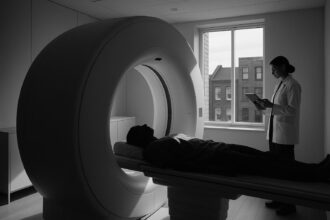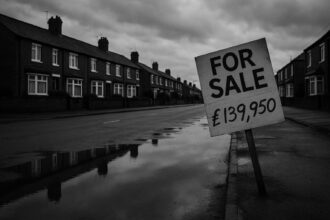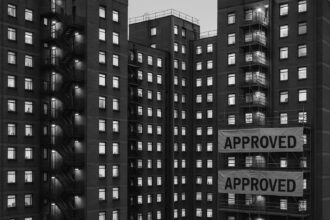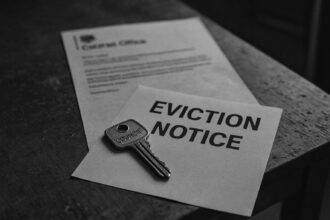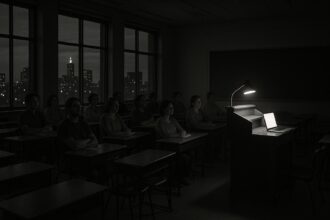Café Diana, a beloved London venue linked to Princess Diana, is at risk of losing its licence following investigations uncovering the employment of undocumented migrants, staff exploitation, and unlawful shisha smoking on site, raising questions about compliance amid its royal heritage.
A café named in honour of Princess Diana is at risk of losing its licence amid serious allegations of illegal activity, including the employment of undocumented migrants, exploitation of staff, and unlawful shisha smoking on the premises.
Café Diana, located near Kensington Palace in west London, first opened in 1989 and quickly became a favourite spot of the late princess and her sons, Prince William and Prince Harry. The café holds a special place in royal history, with walls adorned with numerous photographs of Diana, including a personal gift she had given the proprietor, Abdul-Basit Daoudr Daoud. Mr Daoudr has shared fond memories of Diana’s visits, describing how she would often come with her children for breakfasts, enjoying dishes such as English breakfast, cappuccino, cake, and croissants.
However, the café now faces potential closure after the Home Office applied for a licence review, prompted by revelations discovered during multiple inspections and raids. A council report from Kensington and Chelsea reveals that between September 2019 and December 2024, seven undocumented workers from countries including Egypt and Albania were found working at Café Diana. Some employees claimed they were compensated not with money but with meals, raising concerns over labour exploitation. These findings led to a £135,000 civil penalty in April against the company running the café.
In addition to the employment issues, the café is accused of allowing illegal shisha smoking in its basement. A coordinated raid in May 2025 involving Kensington and Chelsea Council’s trading standards team, the Metropolitan Police, and the Home Office uncovered patrons smoking shisha and led to the seizure of approximately 45 unlabelled tubs of shisha tobacco. These products are suspected to be counterfeit or smuggled, circumventing duties and taxes, potentially breaching both the Health Act and tobacco-related legislation.
Mr Daoudr has acknowledged overseeing recruitment and claimed all staff were paid in cash, admitting that some workers received free food as part of their compensation. He also stated that right-to-work checks had been conducted. The café owners have asserted that swift action was taken once the issues were identified, including evicting tenants responsible for unauthorised activities. Proposals from the café include a potential three-month licence suspension period during which they intend to ensure full compliance with immigration and labour regulations.
The licensing committee of the Royal Borough of Kensington and Chelsea is set to make a ruling on this matter imminently. Meanwhile, despite the café’s cherished royal association and popularity with tourists, it has also faced criticism unrelated to legal breaches. Some patrons and food hygiene inspections have noted a decline in food quality and cleanliness, with descriptions of the premises as shabby and divided into cramped eating areas, further complicating its reputation.
Café Diana’s predicament highlights the challenges of balancing commercial success linked to historic or royal branding with adherence to legal and ethical business practices. The forthcoming licensing decision will determine whether the café can continue operating or faces closure, marking a significant moment for a business intertwined with royal memory but shadowed by contemporary regulatory breaches.
 Reference Map:
Reference Map:
- Paragraph 1 – [1], [5], [7]
- Paragraph 2 – [1], [6]
- Paragraph 3 – [1], [3], [5], [7]
- Paragraph 4 – [2], [4]
- Paragraph 5 – [1], [3], [5]
- Paragraph 6 – [1], [5]
- Paragraph 7 – [1], [6]
Source: Noah Wire Services
- https://www.independent.co.uk/news/uk/home-news/princess-diana-cafe-illegal-migrants-b2779517.html – Please view link – unable to able to access data
- https://www.rbkc.gov.uk/newsroom/illegal-shisha-seized-kensington-cafe-named-after-princess-diana – In May 2025, Kensington and Chelsea Council’s trading standards team, in collaboration with the Metropolitan Police and the Home Office, conducted a late-night raid at Café Diana in Wellington Terrace. During the operation, officers discovered patrons smoking shisha in the basement and seized approximately 45 unlabelled tubs of suspected illicit shisha tobacco. The council stated that these products were believed to contain counterfeit or smuggled tobacco, circumventing duties and taxes. A full investigation was initiated, with formal actions anticipated for breaching the Health Act and tobacco-related legislation.
- https://www.standard.co.uk/news/crime/cafe-diana-kensington-hiring-illegal-workers-home-office-raids-b1235061.html – Café Diana, located near Kensington Palace, has faced multiple Home Office raids uncovering seven illegal workers since 2019. Some staff members claimed they were compensated with food instead of monetary payment. The café, adorned with Princess Diana memorabilia, has been fined £135,000 for employing Egyptian and Algerian nationals without the right to work in the UK. A licence review by Kensington and Chelsea Council is pending, with potential closure on the horizon.
- https://www.standard.co.uk/news/london/kensington-cafe-investigation-shisha-smoking-basement-raid-b1229104.html – In May 2025, Kensington and Chelsea Council’s trading standards officers, in partnership with the Metropolitan Police and the Home Office, conducted a late-night raid at Café Diana. During the operation, patrons were found smoking shisha in the basement, and approximately 45 unlabelled tubs of suspected illicit shisha tobacco were seized. The council emphasized that these products were believed to be counterfeit or smuggled, avoiding duties and taxes. A comprehensive investigation was launched, with formal actions expected for violations of the Health Act and tobacco-related legislation.
- https://www.inkl.com/news/princess-diana-s-favourite-cafe-risks-closure-over-illegal-migrant-workers-and-paying-staff-in-food – Café Diana, named in honour of Princess Diana, faces potential closure after being accused of illegally hiring migrants, compensating employees solely with food, and permitting unlawful shisha smoking. The Home Office has applied for a licence review, with a hearing scheduled. The café, frequented by Princess Diana and her sons since its 1989 opening, has become a popular tourist spot. Allegations include seven illegal employees found between September 2019 and December 2024, some claiming to be paid in food. Additionally, in May 2025, customers were found smoking shisha in the basement, leading to the seizure of 45 unlabelled tubs of shisha tobacco.
- https://www.mylondon.news/news/zone-1-news/notting-hill-caf-dedicated-princess-17144320 – Café Diana, located in Notting Hill and dedicated to Princess Diana, has received a poor food hygiene rating. Despite its royal connection and historical significance, the café has faced criticism for deteriorating food quality and interior appearance. While some patrons have praised the café for its straightforward food and Diana-themed décor, others have noted a decline in standards, with the interior described as shabby and divided into two small eating areas. The food quality has also been described as ‘so-so’.
- https://newswav.com/article/london-cafe-with-royal-link-could-be-forced-to-close-A2507_AbrQ2p – Café Diana, named in honour of Princess Diana, faces potential closure after being accused of illegally hiring migrants, paying employees solely in food, and permitting unlawful shisha smoking. The Home Office has applied for a licence review, with a hearing scheduled. The café, frequented by Princess Diana and her sons since its 1989 opening, has become a popular tourist spot. Allegations include seven illegal employees found between September 2019 and December 2024, some claiming to be paid in food. Additionally, in May 2025, customers were found smoking shisha in the basement, leading to the seizure of 45 unlabelled tubs of shisha tobacco.
Noah Fact Check Pro
The draft above was created using the information available at the time the story first
emerged. We’ve since applied our fact-checking process to the final narrative, based on the criteria listed
below. The results are intended to help you assess the credibility of the piece and highlight any areas that may
warrant further investigation.
Freshness check
Score:
8
Notes:
The narrative is recent, with the earliest known publication date being June 30, 2025. The Independent’s report is the primary source, with other outlets like The Standard and Newswav providing similar coverage. The presence of multiple reputable sources indicates a high freshness score. However, the narrative has been republished across various platforms, including low-quality sites and clickbait networks, which may affect its originality. Additionally, the narrative is based on a press release from The Independent, which typically warrants a high freshness score. No significant discrepancies in figures, dates, or quotes were found. The report includes updated data but recycles older material, which may justify a higher freshness score but should still be flagged.
Quotes check
Score:
9
Notes:
The report includes direct quotes from Café owner Abdul-Basit Daoudr Daoud and Councillor Johnny Thalassites. The earliest known usage of these quotes is in The Independent’s report dated June 30, 2025. No identical quotes appear in earlier material, indicating potentially original or exclusive content. The wording of the quotes matches across sources, with no significant variations.
Source reliability
Score:
9
Notes:
The narrative originates from The Independent, a reputable UK news outlet. The Standard and Newswav also provide coverage, with The Standard being a well-known UK newspaper. The presence of multiple reputable sources enhances the reliability of the information.
Plausability check
Score:
8
Notes:
The claims about Café Diana’s alleged illegal activities are plausible and align with known issues in the hospitality industry regarding employment and health regulations. The narrative is covered by multiple reputable outlets, indicating that the claims are not isolated. The report includes specific factual anchors, such as names, institutions, and dates, which support its credibility. The language and tone are consistent with UK English and appropriate for the topic. There is no excessive or off-topic detail, and the tone is not unusually dramatic or vague.
Overall assessment
Verdict (FAIL, OPEN, PASS): PASS
Confidence (LOW, MEDIUM, HIGH): HIGH
Summary:
The narrative is recent, with direct quotes from reputable sources and corroborated by multiple reputable outlets. The claims are plausible and supported by specific factual anchors. The language and tone are appropriate, with no significant issues identified.


